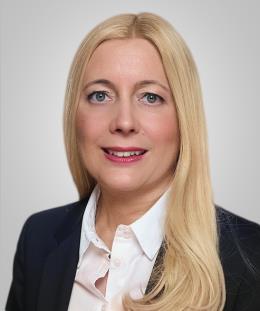European pre marketing restrictions implemented by new regulation
29 July 2021

29 July 2021

The law to strengthen Germany as a fund location will essentially come into force on 2 August 2021 (the Fund Location Act – Fondsstandortgesetz). The asset management industry therefore faces a significant legislative package amending the existing German Capital Investment Code (KAGB – Kapitalanlagegesetzbuch).
The Fund Location Act transposes the European Directive/2019/1160 on cross-border distribution of collective investment undertakings (CBDF Directive) into national law. To avoid competitive disadvantages for Germany, the domestic legislator has decided in favour of a one-to-one implementation, i.e. almost without gold-plating the European rules. As yet, the Federal Financial Supervisory Authority (BaFin) has not commented on this, and new legislative materials provide clarity on only a few points, e.g. that pure capability management and reverse solicitation are in principle not excluded by the new restrictions.
This client briefing provides an overview of the new pre-marketing rules in Germany.
In a separate Part I client briefing, we give an overview of further legal changes introduced by the Fund Location Act; for example the expansion of the product range to include new impact funds, investments in crypto-assets and improved financing options for real estate funds.
As of August 2, fund managers will no longer require a paying and information agent when marketing UCITS or retail AIFs. This leads to considerable administrative and cost relief for fund managers.
UCITS ManCos and AIFMs must merely provide an (internal or external) facility that processes subscription, redemption and conversion applications, and serves as an information and contact point for retail investors. Under the German Fund Location Act, fund managers must be capable of performing these tasks in the German language and also by electronic means. It is clear that the physical presence or designation of a third party is not necessary.
Another relief concerns domestic and EU AIFMs: as of 2 August, only non-EEA AIFMs will have to designate a representative to take over the compliance function in Germany.
If marketing measures taken by the fund manager have not been successful, or all investors in a member state have redeemed their fund units, a de-notification of a fund can be useful. This is in order to avoid further costs and ongoing information obligations associated with the marketing of a fund. In accordance with the European regulator-to-regulator procedure, fund managers distributing a (domestic or EU) AIF or UCITS can discontinue marketing by sending a de-notification notice meeting certain formal criteria to its home state regulator [reference to Ashurst Newsletter 17 Jul 2019]. The de-notification will then be forwarded to the host state regulator, i.e. the member state in which the marketing takes place.
If a non-EEA AIFM markets a fund in Germany under the NPPR regime (e.g. under Art. 42 AIFMD, sec. 330 KAGB), the de-notification notice must be sent to BaFin as the host state regulator.
Whether the new de-notification option will be used by AIFMs in practice remains to be seen, because for a period of 36 months it is not permitted to even perform (new) pre-marketing for AIFs affected by the marketing de-notification or for comparable investment strategies or investment concepts (Blocking period for AIFs). The broader the interpretation of the term "comparable", the less willing fund managers will be to de-notify a fund: for example, it is not uncommon for private equity or debt funds to launch a successor fund that invests in a new portfolio on the basis of a similar investment strategy. If the fund manager would be prevented from carrying out pre-marketing for this successor fund after de-notifying the predecessor fund, the fund manager may decide to maintain the marketing notification, even if no marketing activity is actually performed. While the German regulator (BaFin) has not yet given any guidance in this regard, it would be appropriate to interpret "comparability" of investment strategies or investment concepts as narrowly as possible.
Before taking into account the cost, time and the financial and reputational risks of marketing a fund, it is essential to give AIFM the opportunity to first test the market by providing potential investors with information on an investment idea. Such pre-marketing activities are even considered part of a fund manager's duty of care.
As the pre-marketing phase was not regulated by European law, and probably does not need this at all [reference to Ashurst newsletter 12 Mar 2018], the CBDF Directive seeks to establish a new EU-harmonised pre-marketing regime under the AIFMD. The EuVECA and EuSEF Regulations are similarly amended, while no such rules are yet stipulated for UCITS.
The German definition of pre-marketing generally corresponds with the European definition covering the following activities:
A domestic AIFM must submit a notification to BaFin, as the home state regulator, within two weeks of commencing pre-marketing activities. BaFin then informs the relevant national competent authority (NCA) of the host member state where the AIFM has engaged in pre-marketing. The notification letter must include:
the relevant member states and periods of pre-marketing;
Finding some support in the recitals of the CBDF Directive, the German pre-marketing rules also apply to non-EEA AIFM performing pre-marketing activities for funds in Germany.
They are subject to the notification process, but without the specifications relevant to EU AIFMs only. Accordingly, non-EEA AIFMs are required to provide a brief description of the pre-marketing activities as well as the relevant periods and, where relevant, a list of AIFs subject to pre-marketing. This puts non-EEA AIFMs at a particular disadvantage because they cannot benefit from the EU passport regime. From this perspective, a glimmer of hope is that the CBDF Directive reserves the extension of the pre-marketing passport to non-EEA AIFMs for later review.
Small AIFMs registered to manage special (institutional, non-retail) AIFs should be considered out of scope of the German pre-marketing rules. This would be in line with BaFin's practice, according to which small AIFMs are not subject to the marketing rules and are permitted to market their institutional funds to professional and semi-professional investors without submitting a marketing notification.
The CBDF Directive requires that a third party which engages in pre-marketing activities on behalf of the AIFM must be a licensed entity in the EU. The Fund Location Act implements the EU catalogue of relevant licensed entities including tied agents, AIFM, UCITS-ManCo, investment firms and credit institutions. However, since mere pre-marketing in the form of testing investor appetite is typically not even a MiFID-relevant activity, this requirement stemming from the CBDF Directive was widely criticised by lawyers and academics.
In practice, there is debate as to whether the third party is required to send a notification to the regulator when engaging in pre-marketing on behalf of an AIFM. Conceptual wise, the better arguments speak for that AIFMs, including the non-EEA AIFMs, are primarily subject to the notification requirement. This should be coordinated between AIFMs and third parties at times.
In Germany, so-called financial investment brokers are very common and are subject to a local "MiFID-light" regime (sec. 34f. Gewerbeordnung). Even though such financial investment brokers are permitted to market funds (that are notified with BaFin), they are not mentioned in the new list of third parties and therefore not permitted to render pre-marketing activities. The exclusion of these locally licensed supervised companies may be criticised with good reason; although the legislator has ultimately chosen this route.
The CBDF Directive and the Fund Location Act restrict pre-marketing activities in several ways [reference to Ashurst newsletter 17 July 2019]: one requirement is that investors are not permitted to subscribe fund units through pre-marketing. This can be achieved without much difficulty, since a subscription requires the consent of the AIFM to be effective.
In particular and in accordance with the CBDF Directive, AIFMs may engage in pre-marketing, except where the information presented to potential professional and semi-professional investors exceeds the following thresholds and constitutes marketing:
Where a draft prospectus or offering documents are provided, they shall not contain information sufficient to allow investors to take an investment decision and shall clearly state in a disclaimer that:
These rather vague requirements have been criticised for their potential adverse effects on existing well-functioning pre-marketing practice in Germany. From the investor's point of view, it hardly seems sensible to express an interest in a fund concept on the basis of incomplete and inadequate information; this applies all the more if the information relevant to the investor is already available, e.g. in an existing PPM for another country. However, the German legislator must implement the European restrictions and has decided to take a word-by-word approach, which leaves major interpretation issues unsolved.
In addition to the above requirements, the European and domestic pre-marketing rules stipulate a so-called marketing fiction: if an investor acquires fund units within 18 months of commencement of pre-marketing, the subscription is considered to be a result of marketing and consequently the AIFM must then successfully complete a marketing notification procedure.
Concerns are being expressed in the market that in particular the marketing fiction would stress BaFin's long-standing and pragmatic practice, according to which institutional investors already involved in negotiations on a special fund structure, as is often the case, do not trigger a marketing notification requirement. From our point of view, BaFin should be able to maintain its existing argumentation, because in such co-negotiation situations there remains an absence of marketing on the part of AIFMs towards those investors. Hence, a marketing notification would only be required if there is a specific intention to market the fund to investors that were not involved in the fund structuring process. As regards pre-marketing, BaFin could likewise come to the conclusion that pre-marketing in terms of testing investor appetite does not apply to situations where an institutional investor is already involved in negotiations on the fund terms, and therefore design the special fund structure itself. However, this view would have to be confirmed by BaFin.
In the explanatory text, the German Fund Location Act provides for two concepts that remain outside the scope of pre-marketing:
The information provided is not intended to be a comprehensive review of all developments in the law and practice, or to cover all aspects of those referred to.
Readers should take legal advice before applying it to specific issues or transactions.



Sign-up to select your areas of interest
Sign-up